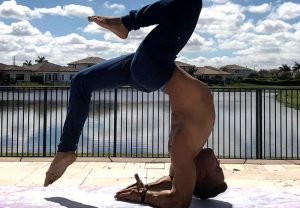According to a recent poll, 51% of adults worldwide do not get enough quality sleep. This can pave the way to a number of problems that can arise without sufficient rest.
We need it for the sake of our brain function and our physical body alike, so it’s no surprise that the amount of sleep you’re getting as well as the quality can impact your workouts. Whether you’re already in a committed relationship with the gym or you’re new to training, this is a quick reminder of the importance of sleep in terms of your fitness goals.
Why sleep Matters
We all need sleep, and we know that. But, how exactly does it affect your workout regime? Well first, when you sleep, you recover. Just like rest days are important, quality rest is important.
While you sleep, your body rebuilds, restores and repairs. And without it, healing will take longer and your muscle memory will be poorer which means you are going to be more prone to injury. In addition, your mental game will be weaker. You will have less drive to push your hardest, and your accuracy will suffer too.

How to maximize your sleep
There are a few things that you can do to boost the quality of your sleep and luckily, maintaining a consistent workout routine is a big one. Exercising can increase the time spent in deep sleep, which is the most physically restorative stage of rest, but be conscious of your timing. Working out too close to bedtime can leave you with excess energy and make it difficult to drift off depending on your preferences. Next, assess your mattress. According to the authors at Sleep Reviews, the most important factor when choosing the right mattress is your sleeping position, so keep that in mind when you’re shopping.
Finally, create the right environment. Don’t go to bed with clutter, and don’t go to bed with screens – TV, smartphone, tablet, etc. It’s important that your bedroom remains dark, quiet, and ideally, on the cooler side in terms of temperature.

What to Avoid
Now, you know how to achieve quality sleep, but there is something that you will want to avoid. While enough sleep is extremely important, it’s equally as important to prevent oversleeping. There are a lot of health hazards that can result from too much sleep. They include a higher risk of heart disease, diabetes, stroke, and more. Additionally, research has linked oversleep to depression, increased inflammation, and even impaired fertility. The amount of sleep that appears to serve the lowest mortality rate is about seven hours, but keep in mind that everyone is different and you should experiment to see what works best for you.
Sleep and fitness have a close, intimate, and mutually beneficial relationship. Your best rest and your best workouts come hand in hand. Consult your doctor if you’re unsure of how much sleep your body needs or if you believe you may have a sleep disorder or an underlying issue preventing you from achieving the quality sleep that you need.
Photos by:

















